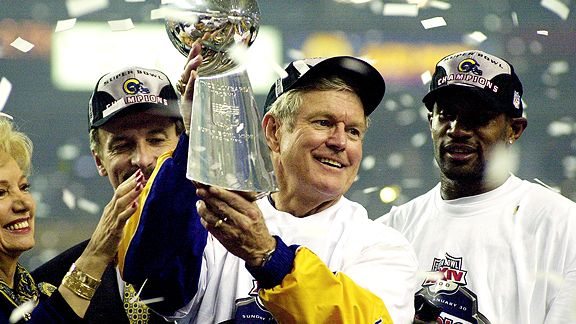When you think about the Ravens under John Harbaugh — or just about any time in their existence — you think of a defensive team. Under Ray Lewis, Ed Reed, Terrell Suggs, and Haloti Ngata, Baltimore has fielded dominant defenses for much of the last decade. Marvin Lewis, Baltimore’s defensive coordinator from 1996 to 2001, was rewarded with the head coaching job in Cincinnati after his years of excellent service. He was replaced by Mike Nolan, who after coordinating the defense for three years in Baltimore, was tapped to revive the 49ers. His replacement, Rex Ryan, excelled for four years in Baltimore, and was then chosen by the Jets to be their next head coach. The Ravens replaced Ryan with Greg Mattison, who was lured by his friend Brady Hoke to take the DC job at Michigan in 2011. He was replaced by Chuck Pagano, who coordinated the Baltimore defense for only a year (after spending three as the defensive backs coach) before the Colts selected him to be their next head coach. Dean Pees is the current DC in Baltimore.
Suffice it to say, with so many prominent names roaming the sidelines and coordinating the defenses in Baltimore, there are few fingerprints from either John Harbaugh or his predecessor Brian Billick on the great Ravens defenses. When you look at Baltimore’s offense under Harbaugh, you immediately think of Cam Cameron, who excelled so much in his role as OC in San Diego that he was hired by the Miami Dolphins in 2007. Cameron’s Dolphins went 1-15 and he was fired after only one year, but Harbaugh chose Cameron to be his first offensive coordinator. Then, with three weeks remaining in the regular season, Harbaugh fired Cameron and promoted Jim Caldwell to OC.
That’s a long bit of background to say this: John Harbaugh isn’t in charge of the Baltimore offense or the Baltimore defense. At least when Brian Billick was around, you knew the offense would be crafted in his image, even if it wasn’t successful. But there’s a reason you don’t think of Harbaugh when you think of the specific offensive/defensive units in Baltimore: that’s because he made his name as a Special Teams coach
There are good reasons for owners and general managers to prefer a special teams coach over a similarly-qualified coach with an offensive or defensive background. Many times, the “whiz kid” coordinators struggle to shake that habit once they are promoted — see Rex Ryan, Mike Martz — and often ignore the other side of the ball. In Dallas, Jason Garrett kept his role as play-caller even after being promoted to head coach. That led, in my opinion, to Garrett becoming overwhelmed on gameday, as the Cowboys have constantly mismanaged end-of-half and end-of-game situations. Now, Jerry Jones has removed that role from Garrett (Bill Callahan will be calling the plays in 2013), which should relieve some of the burden on his plate, and in my opinion, make him a better coach. While many great coaches have called their own plays, being a head coach is about much more than calling plays, and Garrett needs to transition to that role if he wants to succeed.
There’s another reason why I like the idea of hiring a special teams coach as your head coach: I suspect it is easier to attract the best candidates for OC and DC when those coaches know that they will be running the show. Mike Tomlin was fortunate enough to inherit Dick LeBeau, but in general, it’s probably harder for defensive head coaches to hire the promising young DC who wants to make a name for himself. Similarly, Harbaugh presumably has an advantage when it comes to hiring his OC, too, because that man knows he will get all the credit. Lovie Smith was the linebackers coach on a team coached by Tony Dungy on a defense run by Monte Kiffin; if he wanted to make a name for himself, he needed to go to a team where he would be the face of the defense, and that was to St. Louis’ benefit. The brothers Gruden both sought out their first OC job under defensive-minded head coaches (Ray Rhodes for Jon and Marvin Lewis for Jay). A special teams coach has the benefit of being able to attract the best offensive coordinators and best defensive coordinators.
Being a head coach is more about managing a team, creating a vision for the roster, hiring talented people, and being a leader than it is about play-calling. I wonder if the success of Harbaugh will bring about a new wave of special team coaches in the NFL.
References
| ↑1 | In addition, Mike Ditka also coached special teams under Tom Landy, while Chan Gailey and Gregg Williams both broke into the NFL on special teams. Ken Whisenhunt was the Jets special teams coach in 2000, and while Bill Cowher and Bill Belichick made their names as defensive coaches, both started off as special teams coaches, too. |
|---|

